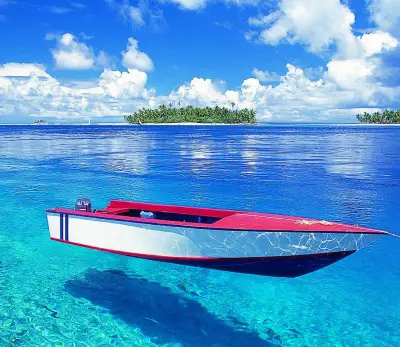As a Pacific colony of the French, Tahiti suffered the same fate as many other colonies – its native language became somewhat displaced by the language of the colonizers. But Tahitian language remains alive and well on the island nation despite the continuing dominance of French. In fact, luxury cruise lines are now even offering their passengers Tahitian lessons so they can communicate with locals in the native language when they disembark. The cruise lines believe this will add and extra level of authenticity to the experience of their guests while also encouraging goodwill with locals.
Tahitian language has much in common with New Zealand Maori, and there is still much ongoing speculation about exactly how the Maori and Tahitians are related and when the journey across the Pacific from Tahiti to the more southern New Zealand might have been made. Recently a Maori contingent sailed on a history retracing of ancient sailing lines and touched base in French Polynesia, and experience which those on board felt reinforced the strength of connections between the peoples and made them realise how much they have in common.
Tahitian has not only survived through French influence, it has also led to the development of at least one hybrid language in the form of Norf’k. Norf’k is spoken on Norfolk Island, an Australian territory, and is made up of a mixture between Tahitian and 18th Century English – making for a very interesting combination indeed. A New Zealand travel writer who visited the island recently commented on the simplicity of life, the lack of modern amenities and the unusual friendliness the locals displayed to each other and to tourists.
The influence of colonization on Tahiti is still obvious in one major way, however. There is no ‘b’ sound in the Tahitian language – the island of Bora Bora is in fact properly named Pora Pora, but the earliest European visitors misheard the name and the incorrect pronunciation has been in use ever since.

